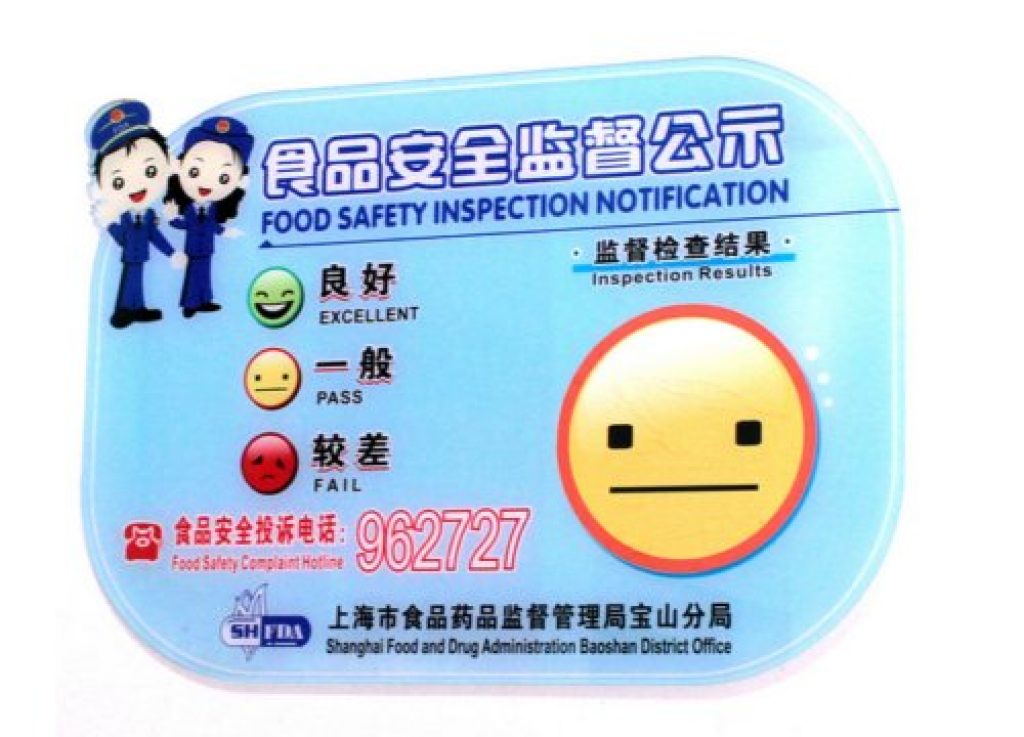
AsianScientist (Sep. 5, 2014) – In July, Shanghai’s Dragon TV exposed illegal food handling practices by Shanghai Husi Food Co., a major meat supplier to multinational corporations such as McDonald’s and KFC.
The story, which was the result of months of undercover investigative journalism and concealed video recording, showed footage of numerous violations including mixing expired meat with usable product as well as deliberately deceiving a regular inspection group from McDonald’s. Six Husi staff members were swiftly arrested. It is believed that such behavior had been going on for years, though Husi’s senior management claimed this was an isolated incident.
While food in China is generally safe, repeated food safety incidents make a mockery out of serious reform efforts. In all likelihood, only a small number of people violate food safety laws. But they have become China’s Achilles heel, remaining elusive and making it hard to clarify the scope of the problem.
The media, in partnership with whistleblowers, has been increasingly successful in exposing violators. The latest case is indicative of their approach.
Dragon TV justified their undercover assignment based on ‘reports coming out of the factory’. The background is complex, and draws attention to certain features of whistleblowers in China. Husi’s exposure stems from the unsuccessful resolution of concerns regarding workplace safety, conditions and practices raised previously by their employees.
Two employees are central to the case. The first employee, from the quality control department, tried to sue Husi in July 2013. He sought approximately 40,000 yuan (US$6500) in compensation, claiming Husi’s work conditions were unsafe, overtime was excessive and they regularly mislabeled product expiry dates. The court repealed the case in Husi’s favor. Another employee, who tried similarly without success, finally decided to approach Dragon TV, leading to the story that made headlines.
Until investigations are complete, it is impossible to know what really happened or if this is indeed only an isolated incident. It is even harder to ascertain a motive. The video footage captured one factory worker claiming that while food at McDonald’s and KFC might taste different, ‘what the eye doesn’t see the heart doesn’t worry about’, suggesting they did not perceive any safety threat or moral issue in their behavior. Potential health risks of the case have not been discussed, with coverage instead focusing on the illegal behavior.
Wu Heng, a well-known food safety activist and author based in Shanghai, speculates that the motivation for food safety violations often comes down to money: someone, somewhere, is profiting from this. Kai Kottenstede, a Chinese food safety regulations researcher, notes that Shanghai city is a leader in food safety, while both McDonald’s and KFC have learnt from experience to be extra cautious in China.
Yet this latest case demonstrates that no one is immune. Also, whistleblowers might be bolder at firms with foreign affiliations, sensing their chances of success are higher. But Kottenstede believes this incident distracts attention from more important food safety topics, such as gutter oil and other hygiene issues that pose a proven threat to public health.
Still, whistleblowers in China are increasing, encouraged by recent anti-corruption initiatives led by President Xi Jinping. For example, in 2013 alone the Central Commission for Discipline Inspection conducted over 170,000 investigations across government departments and businesses based on internal and external tip-offs. An increase in whistleblower lawyers—allowing for anonymity—has also contributed to this increase. Yet when official and legal options fail, as they did at Husi, the media can become a powerful ally for whistleblowers.
Recent analysis in the Chinese media suggests that over 50 percent of food safety violations become public knowledge through investigative journalism, compared with 23 percent via government sources. By publishing violations, the media can increase chances of punitive government action. This also reduces the chances of backroom deals, which may only involve symbolic penalties.
But, despite protection laws, ensuring the safety of whistleblowers is difficult. Data from the Supreme People’s Procurator, a central judiciary body in China, indicates that up to 70 percent of whistleblowers experience some form of retaliation.
Whistleblowing is not a long-term solution for food safety in China. While it has proven effective in exposing violations, it does not resolve fundamental issues nor clarify the scope of the problem, and Chinese citizens are still uncertain whom to trust. Food safety violators in China are in all likelihood limited to a small number of people, yet they continue to plague China’s efforts at reform.
Sacha Cody is a PhD candidate at the China Institute, College of Asia & the Pacific, The Australian National University. He has lived in China since 2002 and consulted to many companies on food safety issues.
———-
Source: East Asia Forum; Photo: Harald Groven/Flickr/CC.
Disclaimer: This article does not necessarily reflect the views of AsianScientist or its staff.












